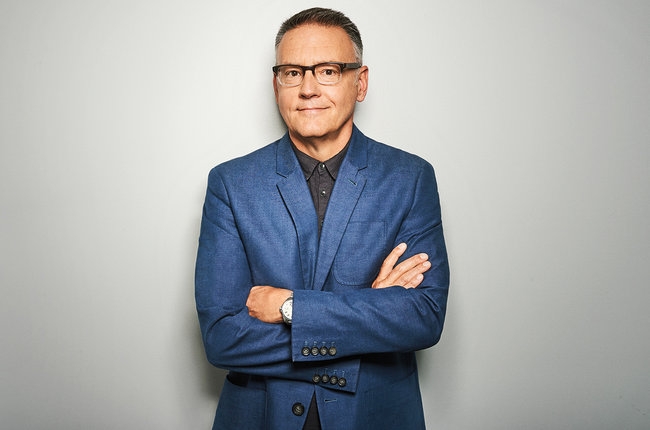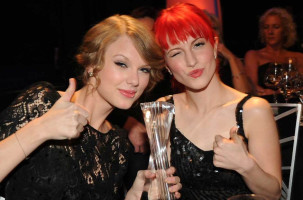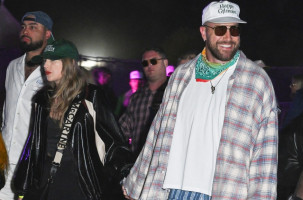Streaming is a major priority for Sony Music Nashville chairman/CEO Randy Goodman as he strives "to rebuild the prominence and the legacy" of the label group he took over a little more than two years ago.
"This is the new world order. We either adopt or we die," he said of streaming during a Sept. 7 speech to Nashville business leaders that found him repeatedly circling back to that topic.
Goodman's appearance during the Nashville Business Breakfast at Lipscomb University was well timed, as he was celebrating SMN having three of the top four albums on Billboard's Top Country Albums chart for the first time in the -company's history (Luke Combs, Kane Brown and Old Dominion). During his speech and a Q&A that followed, Goodman candidly reflected on his 32 years in the industry and the strides he and his team have made since taking the helm at SMN in July 2015. Here are some key excerpts from his remarks:
On country trailing the rest of the industry in streaming: "Historically, country music always lags behind in terms of technology adoption, but it always catches up, because you kind of know what to do with a cassette, you know what to do with an 8-track, you know what to do with a CD. Now, all of a sudden, our core demographic -- which we call 'the soccer moms,' for lack of a better term -- is sitting there going, 'Should I be on Spotify? Should I be on Apple streaming? Should I be on Amazon Prime? Should I be on Pandora? And how do I get on it, and should I do pay [tier], or should I do free?'
"We're living in a world now where it's intuitive for the younger demographic to do that … For our demographic, it's not as intuitive, and it's one of the things that we're really having to struggle with and deal with as an industry, because the most important thing for us over the next several years is to get our streaming to scale, at least to a 10 percent business. Until we do, that technology disruption and that squeeze on our revenue [will] continue to be a primary source of struggle."
On developing streaming strategies: "We talk constantly about how we're going to lead into streaming. It's something that we really drive back to our teams on a daily basis. We talk about what are some of the programs, what are some of the strategies we can employ that really allow us to lean into streaming. The fact that we're at [religious institution] Lipscomb notwithstanding, in our world, hope is not a strategy … we have to be more strategic than hopeful. We can't just be waiting around."
On radio's importance: "As we look at our core strengths, we are still an industry that is driven by terrestrial radio. We're talking about streaming, so it sounds counterintuitive to talk about something as old and arcane as terrestrial radio, but … the radio stations you turn to on your FM dial, that's still what drives everything. It drives ticket sales, it drives consumption of albums, it also drives streaming. So that's a very important part of where our manpower is."
On Amazon's Echo and Alexa: "That's a new technology Amazon is using that we really believe, as that scales, could have a big impact on us in terms of sales. One of the [ways] Amazon is unique is that so much of our core demographic already sits in the Amazon Prime category … and with that artificial intelligence, you're able to say, 'Order me whatever,' and it's going to come. They've recently moved into their own streaming service, so you can actually talk to Alexa and say, 'Play me a Jimmy Buffett playlist.' We're very encouraged by that … because that's just another way I think we're going to be able to penetrate that market and make it even easier, so that there's not as many decisions that need to be made for our core demographic."
On his core company values: "One of the things we wanted to undergird ourselves with was a set of values that we could go back to on a daily basis and use as a lens for what we're doing. [Those values are] passion, creativity, dependability, growth and respect. These are the things we charge ourselves with on a daily basis."
On artist development: "One of the things we charge our A&R staff with when we look at a new artist is, 'Are they compelling?' Because if they're not unique, if they don't have their own lane, we don't need to get into that business."
On the competitive A&R environment: "We're having to be very aggressive with the deals we're making to make sure we get the acts we want."
On Nashville attracting established artists from all genres "As artists tend to get a little bit older and maybe move into more of a sobriety part of their career and start to have kids, they decide that Nashville is a better place to live than Los Angeles and New York. And, quite honestly, Nashville is really one of the only places where you can come and there's still studios that do organic music, where there's real players and not just people doing tracks on a computer."
On how the Nashville business community can help country be more successful: "If you're on a free tier with one of the streaming services, please get off that and get on premium. That would help us as we lean into streaming … don't use YouTube, and tell your kids not to use YouTube. It [pays] .002 cents a stream, and it's just not a good service."
On country artists stepping up to help hurricane relief efforts: "It's one of the exciting things to be a part of this business, as you help develop these new artists and get involved with legacy artists, just to see the good work that they do. And having [worked] in New York, and having been in Nashville, I will tell you it's something that is very unique to our industry, very unique to our community, that immediately there's a call to action."








